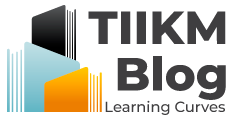“Technology and the internet have changed the world of publishing forever.”
– Mary Kay Andrew –
The influence of technological improvements on publishing is profoundly illustrated in this inspirational quote from Andrew, challenging the established publishing sector. Publishing used to be a time-consuming process that included long manuscript submissions, printing, and distribution and a limited audience that restricted access to knowledge and literature. The conventional barriers and restrictions have, however, been broken by the advancement of technology and the widespread use of the internet, opening up many chances for publication, information sharing, and networking. By using word processors, digital design tools, and sharing material on online publishing platforms, digitalization has given rise to a worldwide network of information.
Technology in the digital age improves the simplicity and speed of content generation and information transmission. For instance, multimedia components like graphics, animations, videos, and audio have increased how simple it is to deliver information to the global community, and the emergence of e-books and digital publishing platforms has provided limitless access at the touch of a screen.
To promote academia and science in today’s globalized culture, publishing professionals must conduct research and disseminate discoveries to a global audience. Researchers worldwide perform and share their work through various approaches, including technical papers, journal articles, conference presentations, etc. Researching in the past needed a lot of resources, which were only available in the form of physical libraries and specialized databases. However, today’s researchers can access vast information from around the world with just a few clicks. The Internet has become a digital resource bank of academic publications, research papers, and varied data sources, enabling researchers to explore various disciplines and perspectives. With the widespread usage of the Internet, non-native English speakers must overcome language barriers since English has become the academic lingua franca. Consequently, in a digital environment where plagiarism and piracy are pervasive, the problems of credibility, copyright, and intellectual property have grown more complicated. But the function of publishing in the digital age captures the transformational force of technology via the fantastic opportunities made available to writers, readers, and the spread of information and literature.
Modern technology and software have improved the effectiveness and efficiency of the research paper writing process. Grammarly, Quillbot, Google Scholar, Mendeley, and Turnitin are valuable tools that have changed how academics approach their job by offering assistance during the research and writing processes.
One of the key participants in this digital world is Grammarly, an intelligent writing assistant. In addition to normal spell-checking and grammatical correction, Grammarly provides style advice, clarity improvements, plagiarism detection, and other features. By adding Grammarly to their writing process, researchers may enhance the quality and coherence of their writing and make sure that their ideas are conveyed clearly and professionally.
Another helpful tool is Quillbot, an AI-powered application for rewording and paraphrasing. Quillbot assists authors in avoiding plagiarism by offering suggestions for improved sentence structure and wording. Multiple sources must constantly be cited and acknowledged in research writing. Quillbot’s ability to produce a range of phrase patterns while maintaining the original meaning helps students create innovative and creative work while respecting academic rigour. Finding scholarly content now requires the use of Google Scholar. It allows academic books, theses, journals, and conference papers to be searched for and located. Due to its extensive database, scholars have access to a wealth of information, which broadens and deepens their research.
Additionally, tools like ChatGPT, a sophisticated language model helping the students, have fundamentally altered how researchers may explore ideas, gain information from them, and be pointed in the right direction. Researchers may engage with ChatGPT while receiving real-time feedback, discussing potential study ideas, and refining their arguments. ChatGPT promotes creativity and provides researchers a constant virtual companion since it is interactive.
Programs like Mendeley make managing references and organizing research materials easier. With the help of this reference management software, researchers can quickly write citations and bibliographies, collaborate with colleagues, and preserve and collect their bibliographic data. Mendeley automates the citation management process so that researchers have more time to focus on the content and analysis of their study.
Lastly, it is crucial to maintain academic integrity, and Turnitin significantly contributes to this. Software that detects plagiarism compares written work to an extensive database of academic literature to guarantee that researchers are presenting original work. Thanks to Turnitin, academics may be confident that their work is unique and upholds the principles of scholarly integrity.
In conclusion, when referring to the current advancement of publishing, the accuracy of Andrew’s statement that technology and the internet have changed the world of publishing forever is reliable. Technology-enabled accessibility, speed, and interconnection have radically changed how the material is produced, disseminated, and consumed. The revolutionary force of technology has opened a new era of possibilities for authors, readers, and the transmission of information and literature as a whole, even as the publishing sector struggles to adjust to the digital age.
For More Information: https://tiikmpublishing.com/
Ms. Thisuru Jayalath
Publication Executive – The International Institute of Knowledge Management (TIIKM)
